
All TEFs Open for Business Event 04 March
Be a Part of the AI Revolution! Live stream
This event is more than a milestone; it's the grand opening of Europe's leading Testing and Experimentation Facilities (TEFs) for AI, featuring the collective power of AI-Matters, AgrifoodTEF, Citcom.ai, and TEF-Health.
Monday 04 March 2024 | 09am - 5pm
Detailed Programme here:
https://www.eventbrite.ca/e/all-tefs-open-for-business-tickets-805695094717?aff=oddtdtcreator

European Research & Innovation Days
40-years journey through the Research and Innovation Framework Programmes.
The Research and Innovation Week (R&I Week) is the 2024 European Commission’s flagship event on research and innovation which will take place between 18 and 21 March 2024 in Tour & Taxis (Brussels, Belgium) and online.
It’s your chance to discover successful EU-funded research and innovation projects, experience their impact on our society and debate the importance of continued investment in research and innovation.
Join us to discuss and shape the future of research and innovation.
Stay tuned for more news by following us on Twitter @EUScienceInnov and @HorizonEU and join the conversation on #RiDaysEU.

EU project EPIC started
Coordinated by Prof. Claudia Spies, CHARITE, Universitätsmedizin Berlin (DE)
Project management by tp21.
About 6.6 Mio € Funding | Duration: 5 years | Project start: 01 January 2024.
The EPIC project aims to sustainably improve palliative care for critically ill patients and their families in the ICU.
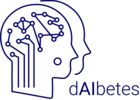
EU project dAIbetes started
Coordinated by Prof. Jan Baumbach, University of Hamburg (DE), Computational Systems Biology¨ | Project management by tp21.
About 9.5 Mio € Funding | Duration: 5 years | Project start: 01 January 2024. Virtual twins as prognostic tools in precision medicine for personalised disease management.
more soon

Open HORIZON Europe calls
Many open calls under HORIZON Europe are published e.g. on
Health - Climate - Mobility - Advanced Materials - AI & Robotics.
See more details and submission deadlines >> here

RexPo23
The 2nd international conference on
SYSTEMS MEDICINE, AI & DRUG REPURPOSING
October 25-26 2023 - Stockholm, SwedenRegister NOW

tp21 is managing partner in TEF-Health
Coordinated by Prof. Dr. Petra Ritter - CHARITE - Universitätsmedizin Berlin (DE), project management by tp21.
37 Partners - TEF-Health project awarded € 60 million for Testing and Experimentation Facility for Health AI and Robotics (EU funding and national fundings)
From the lab to the market
TEF-Health will develop a reference Testing and Experimentation Facility (TEF) with a focus on full integration, testing and validation of advanced AI-based technologies and robotics technologies for health and care.
It aims to accelerate the testing and certifications, to speed up the development and the market access of trustworthy AI solutions in Europe, for both private and public sector use. TEF-Health intends to increase the effectiveness, resilience and sustainability of European health and care systems, and reduce healthcare delivery inequalities in Europe, while ensuring compliance with relevant legal, ethical, quality and interoperability requirements.
more soon on the project website
more on the CORDIS website

EU project IntReALL 2020 started
Coordinated by PD Dr. med. Arend von Stackelberg, Pädiatrie m. S. Onkologie/Hämatologie - CHARITE - Universitätsmedizin Berlin (DE), project management by tp21.
Duration: 5 years - Project start: 01 May 2023
Vision...
Relapse of acute lymphoblastic leukemia (ALL) remains a leading cause of mortality in childhood cancer. IntReALL 2020 will conduct randomized and historically controlled trials in children with relapsed B-cell precursor (BCP) ALL with the aim to replace toxic chemotherapy with better tolerated and more efficacious immunotherapeutic drugs. In standard risk (SR) patients, the CD22 directed antibody-drug conjugate inotuzumab ozogamicin (InO) will be randomly compared with standard of care (SOC) ALL-R3 induction. All patients will receive one SOC consolidation- and one Blina course, compared to historical controls. SR patients with MRD good response will receive 2 additional Blina courses replacing chemotherapy randomly compared with SOC. Patients with high-risk relapse will receive induction investigating InO versus ALL-R3 in an industry-sponsored trial, followed by IntReALL consolidation and allogeneic HSCT. Patients with isolated extramedullary (IEM) relapse are treated based on ALL-REZ BFM 2002 backbone. IntReALL 2020 will establish a federated relapsed/refractory leukaemia board generating personalizedrecommendations based on clinical, molecular-genetic and drug response profiling data. Patients with very-high risk disease will receive experimental/personalized therapies, including a trial investigating CD19-directed chimeric receptor antigen (CAR) T-cells produced in academic institutions. Other CAR T-cells trials as well as an induction trial for T-ALL relapse will be developed. Documentation and monitoring of the trials and the individualized treatment will be realized using the MARVIN database. Comprehensive statistical and data management activities will warrant the accuracy and interpretability of the data. IntReALL 2020 involves representatives from participating pharmaceutical companies and EMA as well as patient/parent advocates to discuss strategies for developing new drugs within academic trials warranting a benefit for all patients on the results. “This action is part of the Cancer Mission cluster of projects on ‘Diagnosis and treatment’.
more soon

EU project Microb-AI-ome started
Coordinated by Prof. Jan Baumbach, Institute for Computational Systems Biology, Universität Hamburg (DE), project management by tp21.
Duration: 5 years - Start: 01 April 2023 - Total funding: approximately € 6 million.
Vision...
In the EU, 1 in 35 women and 1 in 23 men will be diagnosed with colorectal cancer (CRC) in their life span (ca. 340,000
cases and 156,000 deaths in 2020) causing an annual economic burden of ca. 20 billion EUR. Identifying CRC early
enables better treatment options. Screening usually entails a quantitative faecal immunological test (FIT) to predict the
need of colonoscopy for the detection of colorectal lesions, an expensive and invasive procedure. We aim to predict
this need with specificity increased by >20 percentage points by using metagenomic microbiomes. We hypothesise
that computational microbiome profiles extracted using artificial intelligence (Al) technology will allow for optimised
personal therapy stratification. However, clinicians do not have access to broad microbiome data. With Microb-AIome,
we will develop a novel kind of computational stratification technology to enable microbiome-enhanced precision
medicine of CRC. Metagenomic microbiome data to date is distributed over many national registries, and privacy
regulations are hindering its effective integration. With Microb-AI-ome, we will overcome this barrier by establishing the
first privacy-preserving federated big data network in CRC research. We will integrate isolated, national databases into
one international federated database network - rather than a cloud - covering metagenomes for over 5,000 individuals
screened for CRC, and an expected total of 100,000 by 2026. Microb-AI-ome ensures that no sensitive patient data will
leave the safe harbours of the local databases while still allowing for the classification of clinical CRC phenotypes, which
we will demonstrate in clinical practice allowing regulatory bodies to adopt evidence-based guidelines. Our consortium
combines expertise in CRC and its treatment, microbiomics, artificial intelligence, software development, and privacy
protection to close the gap between privacy and big data in international medical research.

EU project AISN started
Integrating AI in Stroke Neurorehabilitation
Coordinated by Prof. Paul Verschure, STICHTING RADBOUD UNIVERSITEIT (NL), project management by tp21.
Duration: 4 years - Start: 01 December 2022 - Total funding: approximately € 7.8 million.
Vision...
Health services are increasingly moving towards a treatment continuum aligned with the patient journey. This transition will critically depend on the successful deployment of trustworthy AI-enhanced technologies that are accurate, secure, and trusted. The AISN project will develop and validate operating procedures and guidelines for integrating AI in a healthcare continuum, focussing on post-stroke rehabilitation. AISN delivers a representative AI health platform built from integrating validated platforms for data acquisition and access, clinical interpretation, whole-brain simulation, clinically validated intervention delivery and optimization and model-based prediction. The AISN integrated platform will be validated in the clinical context of rehabilitation in the outpatient and at-home phase and facilitate a concrete assessment of the fundamental ways in which AI-enhanced clinical decision-support will change the care pathway and the formulation of novel AI compatible treatment guidelines. AISN ensures an ethical approach by developing legal and ethical guidelines for the robust, fair, and trustworthy deployment of AI in health and validating acceptance and transparency of its solutions. Building on the AISN platform, the project will test current standard operating procedures for integrating AI in health care and formulate and validate new ones where needed. The AISN guidelines and procedures will emphasize the evidence base and safety of clinical interventions, transparency, prognostics at varying time-scales, personalization of interventions, access to disease-specific information by clinicians, patients and their careers, and assure that the potential of AI is fully developed in the service of value-based medicine satisfying standards of security and safety. We will go beyond currently available guidelines and frameworks by emphasizing explainability, AI tools with evolving performance, and the dynamic interaction between users and algorithms.

EU project CAVAA started
Counterfactual Assessment and Valuation for Awareness Architecture
Coordinated by Prof. Paul Verschure, STICHTING RADBOUD UNIVERSITEIT (NL), project management by tp21.
Duration: 4 years - Start: 01 October 2022 - Total funding: approximately € 3.1 million.
Vision
The Counterfactual Assessment and Valuation for Awareness Architecture (CAVAA) project proposes that awareness serves survival in a world governed by hidden states, to deal with the “invisible”, from unexplored environments to social interaction that depends on the internal states of agents and moral norms. Awareness reflects a virtual world, a hybrid of perceptual evidence, memory states, and inferred “unobservables”, extended in space and time. The CAVAA project will realize a theory of awareness instantiated as an integrated computational architecture and its components to explain awareness in biological systems and engineer it in technological ones. It will realize underlying computational components of perception, memory, virtualization, simulation, and integration, embody the architecture in robots and artificial agents, validate it across a range of use-cases involving the interaction between multiple humans and artificial agents, using accepted measures and behavioural correlates of awareness. Use cases will address robot foraging, social robotics, computer game benchmarks and human-generated decision trees in a health coach. These benchmarks will focus on resolving trade-offs, e.g. between search efficiency and robustness, and assess the acceptance of human users of aware technology. CAVAA’s awareness engineering is accompanied by an ethics framework towards human users and aware artefacts in the broader spectrum of trustworthy AI, considering shared ontologies, intention complementarity, and behavioural matching, an empathy, relevance of outcomes, reciprocity, counterfactuals and projections towards new future scenarios, and to predict the impact of choices. CAVAA will deliver a better user experience because of its explainability, adaptability, and legibility. CAVAA’s integrated framework redefines how we look at the relationship between humans, other species and smart technologies because it makes the invisible visible.

EU project BE-SAFE started
Implementing a patient-centred and evidence-based intervention to reduce
BEnzodiazepine and sedative-hypnotic use to improve patient SAFEty and quality of care
Vision
Benzodiazepine and sedative hypnotics (BSHs) incur significant adverse effects and costs, especially in older adults.
Addressing BSH overuse in older adults is therefore an urgent priority to improve patient safety in Europe. However,
previous attempts did not lead to large-scale reduction in use.
The goal of BE-SAFE is to improve patient safety by addressing knowledge and practice gaps related to the reduction
of BSHs used for sleep difficulties in Europe.
Coordinated by Prof. Anne Spinewine, Université Catholique de Louvain, (BE), project management by tp21.
Duration: 5 years, starting 1 September 2022 - Total funding: approximately € 5.7 million.
More here
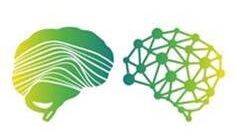
eBRAIN-Health started
eBRAIN-Health - Actionable Multilevel Health Data
Coordinated by Prof. Petra Ritter, CHARITE, project management by tp21.
Duration: 4 years, starting 1 July 2022 - Total funding: approximately € 13 million.
Vision
The project aims to develop a decentralized, data protection-compliant research platform capable of simulating some of the brain’s complex neurobiological phenomena. As part of the project, researchers will collate an array of different types of information, including data from PET and MRI scans, EEG tests, behavioral studies and lifestyle surveys, as well as clinical data from thousands of patients and healthy controls. These will be combined with biological information from knowledge databases and made available for research purposes. The resultant digital ‘brain twins’ will enable large numbers of researchers to conduct innovative research within a powerful digital infrastructure.
Thanks to its transparent analytical pipelines, the new research infrastructure will also help to promote reproducible research.
Furthermore, complex, personalized brain simulations which take into account large quantities of data may be able to provide a better understanding of the mechanisms underlying brain function and disorders. Virtual brain modeling may also improve diagnostics and disease prediction, in addition to enabling the optimization of treatment plans. The project consortium comprises 20 partners and operates in cooperation with EBRAINS AISBL, the coordinating entity of the EU-funded flagship ‘Human Brain Project’.
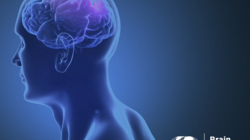
World Brain Day 2022
This year’s WBD will be devoted to brain health for all. The goals are: Awareness - Prevention - Advocacy - Education - Access;
VIDEOS and more >>here

World Cancer Congress
The next World Cancer Congress (WCC) will be held in Geneva, Switzerland from 17 to 20 October 2022,
a combination of on-site events with virtual elements such as webinars, podcasts and online presentations.
How to contribute to the programme?
Whether you are an experienced oncologist, a dedicated cancer researcher, an inspirational caregiver, a committed volunteer representing a patient support group, an employee of a cancer society, a fundraiser or the General Director of a hospital, get involved by contributing to one of the programme features and get ready to stand in the spotlight of the World Cancer Congress.
Sessions - Abstracts - Cinema - Awards - Spotlight Stage --> more here
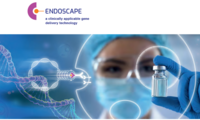
ENDOSCAPE Symposium 08-09 September 2022
ENDOSCAPE will overcome a longstanding and major bottleneck in the field of gene delivery,
namely efficient, safe and cost-effective transfer of gene therapeutic products into the cytosol.
see Topics and Speakers
- Gene Therapy – Where We Stand Today
- Endosomal Escape – The Strategies
- Carriers of Endosomal Escape Enhancers and Genes
- Endosomal Escape – What Happens?
- GMP Production and Market
- Gene Therapy – Animal Experiments and Clinical Applications
- Poster sessions
Confirmed Speakers
- Christine Dufès, University of Strathclyde Glasgow
- Kazunori Kataoka, The University of Tokyo
- Fulvio Mavilio, Università degli Studi di Modena e Reggio Emilia
- Luigi Naldini, Università Vita-Salute San Raffaele Milano
- Jean-Philippe Pellois, Texas A&M University
- Pål Kristian Selbo, Oslo University Hospital
- Vladimir P. Torchilin, Northeastern Univerity Boston
- Jan van Hest, Eindhoven University of Technology
- Ernst Wagner, Ludwig-Maximilians-Universität München
- Inge Zuhorn, University Medical Center Groningen
The SYMPOSIUM is planned to be an onsite event at Berlin.
More details soon on the ENDOSCAPE website.
Please have a look at the >>ENDOSCAPE Video
International Clinical Trials Day
The topic will be Recruitment in Clinical Trials.
ICTD 2022 will take place 17 May 2022 in Berlin, Langenbeck-Virchow-Haus.
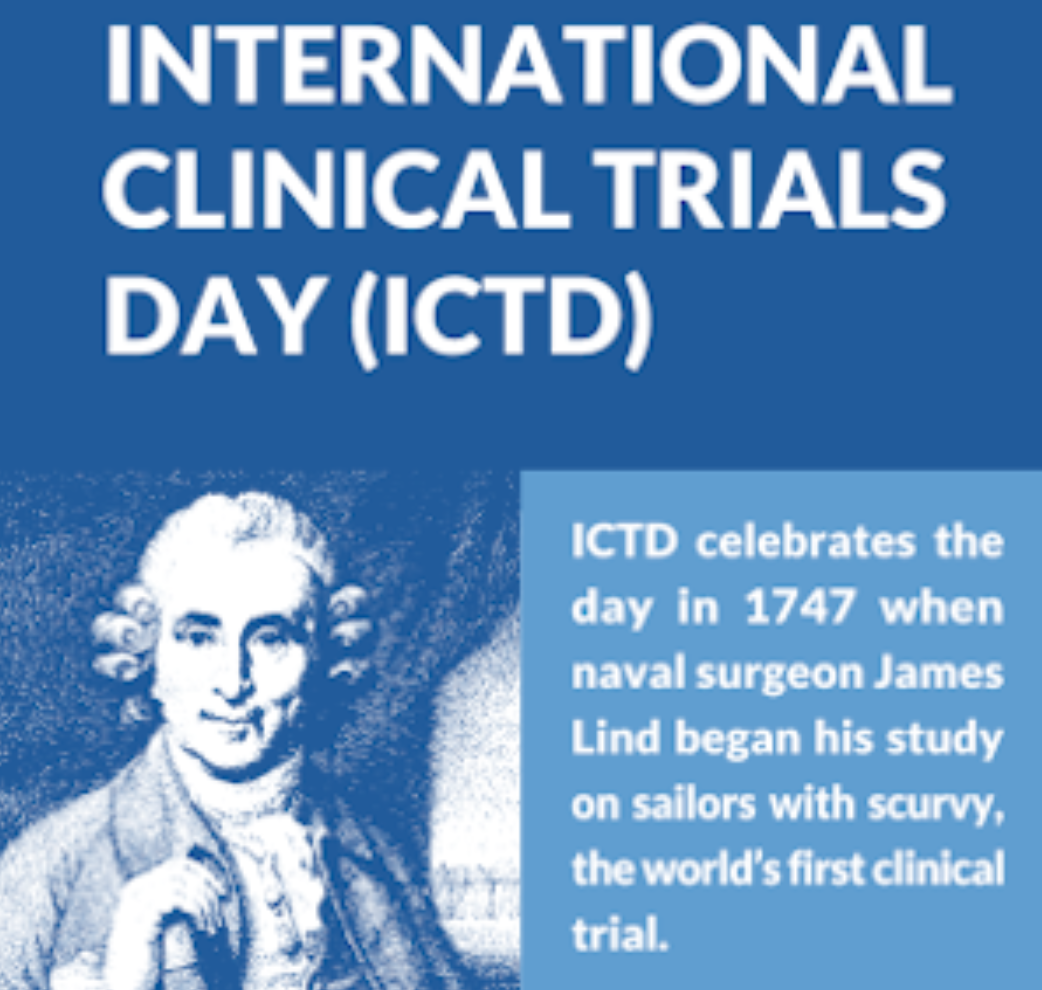
Registration is mandatory. Details >> here.

#EPOTechDay 16.02.2022
Tech Day brings together teams of experts from across the European Patent Office to explore a technological theme of special significance.
The theme of Tech Day 2022 is technologies of transformation: those technologies developed in response to the most pressing global crises of our time with a view to sustaining planetary health - both human health and the health of our planet.
Please note that registration is required for this free event.
European Platform for Neurodegenerative Diseases
New European initiative will build a collaborative platform for data and sample sharing, to accelerate the discovery and validation of biomarkers for neurodegenerative diseases like Alzheimer’s disease (AD) and Parkinson’s disease (PD).
- EPND will become a future European infrastructure, facilitating access to biological samples and data to accelerate biomarker discovery and validation and eventually support the development of therapeutics for neurodegenerative diseases.
For more please visit www.epnd.org
- The European Platform for Neurodegenerative Diseases (EPND) integrates existing initiatives to build, grow, and deliver a scalable and self-sustainable platform for storage and analysis of high-quality clinical samples and data collections.
- EPND is a public-private partnership funded by the Innovative Medicines Initiative (IMI), a Joint Undertaking between the EU and European pharmaceutical industries that supports projects at the vanguard of health research.
EPND will bring together 29 partners from the public and private sectors and will be managed by two public partners, University of Maastricht and University of Leicester, and two private partners, Gates Ventures and UCB Biopharma. EPND will leverage and connect existing European research infrastructures, including BBMRI, EATRIS, ELIXIR and EBRAINS.
Clinical Trial Disclosure & Data Transparency Conference
29 Nov - 01 Dec 2021
This event will provide essentials and timely information about global clinical trial disclosure, data transparency, data sharing for secondary research and updates on the EU Clinical Trial Information System (CTIS) and how Brexit is impacting the disclosure ecosystem.
Featured topics:
>>
- Strategic Aspects of Disclosure and Transparency Beyond Compliance
- UK Disclosure Requirements Updates’
- Patients’ Perspectives around Disclosure
- Considerations on Increased Transparency, Data Privacy and Data Sharing
- Disclosure Requirements in Medical Device Studies
- Non-Interventional studies
- Academia’s Challenges in Clinical Trial Disclosure – Bridging the Gap
- Global Collaboration Initiatives and the Benefits for Transparency & Disclosure
- Lay Summaries are coming!
- Public Demonstration of EU CTIS
- EU Clinical Trial Regulation: Joint Collaboration within Industry Organisation
Read more Clinical Trial Disclosure & Data Transparency Conference
Search Matters 2021
European Patent Office online conference for patent search professionals, 6-8 October 2021.
>>Recorded sessions. The focus was on medical technologies, one of the fastest paced areas of innovation and patent filing in Europe. They accounted for over 14 000 applications at the EPO in 2020 – around 7% of all filings and an increase of 2.6% on 2019.
FAIR and open data sharing in support of cancer research | open call
HORIZON-INFRA-2021-EOSC-01-06
Research and Innovation Action
Expected Outcomes
- researchers, healthcare professionals, cancer patients and survivors contributing to cancer research regularly interact with EOSC to store, share, access, analyse and process research data and other research digital objects from their own discipline, across disciplines and national borders;
....more below - open and FAIR data are the new norm for research conducted under this mission area;
- EU-wide sharing of research data relevant to this area is shown to be a critical mechanism to facilitate cancer research across Member States and Associated Countries;
- contribute to guaranteeing safety of patients’ data while at the same time contributing to research advancement. Engaging with patients/survivors in the sharing, access and use of data;
- EOSC grows into a trusted research and innovation data space and service platform in Europe that supports the interdisciplinary community involved in this mission area;
- contribute to the Horizon Europe EOSC Partnership and other relevant partnerships related to cancer research.
more here
Read more FAIR and open data sharing in support of cancer research | open call
Call for tenders on Health Technology Assessment
Call for tenders “Service contract for the provision of joint Health Technology Assessment (HTA) work supporting the continuation of EU cooperation on HTA”
The subject of this call for tenders is to address methodological issues to foster joint HTA work supporting EU cooperation on HTA beyond May 2021 (when the EU co-funded EUnetHTA Joint Action 3 ends), thus providing relevant input to a potential new legal framework on HTA.
more >> here
Horizon Europe work programs published
The new Horizon Europe 2021-2022 work programs are now published.
First calls are open.
All work programs are available on the Funding and Tenders Portal under "Reference Documents".
tp21 supports application set-up and project management.
![]()
-
PAMMOTH online Symposium 2021

June 11 2021, 13:30 - 17:45 CET
Photoacoustic Mammoscopy for evaluating screening-detected lesions in the breast
Concept and latest results will be presented. Program and Registration here
DIGITAL Europe Programme
The Digital Europe Programme (DIGITAL) is a new EU funding programme focused on bringing digital technology to businesses, citizens and public administrations.
A planned overall budget of € 7.5 billion will support projects in five key capacity areas:
supercomputing | artificial intelligence | cybersecurity | advanced digital skills | ensuring a wide use of digital technologies across the economy, society, including through Digital Innovation Hubs.
How to get funding? More here
European Open Science Cloud
Horizon Europe COVID-19 calls published
The European Commission mobilises €123 million for research and innovation to combat the threat of variants.
Two calls are published
- Vaccines & therapeutic clinical trials to boost COVID-19 prevention and treatment
- Cohorts united against COVID-19 variants of concern.
tp21 supports application set-up and project management.
![]()
erc - First Horizon EUROPE calls started
ERC starts with the first work programme under Horizon Europe, Europe’s new Framework Programme for Research and Innovation for 2021-2027.
ERC supports investigator-driven frontier research across all fields, on the basis of scientific excellence.
The call calendar, deadlines and the work programme for download >> here
FOOD_HYPERSENS call
Joint transnational call “Addressing adverse and beneficial effects of food ingredients and food processing on hypersensitivities to food.
The aim of this call is to address how food ingredients and food processing methods could favour or prevent the occurrence of food intolerances and allergies in society.
HORIZON Europe
The publication of the work programme and the first calls is expected in April 2021.
Find more about the HORIZON Europe clusters and missions >> here.
The Virtual Brain Cloud @ EOSC
The Virtual Brain Cloud project is partner in the European Open Science Cloud initiative.
Short video explaining the Virtual Brain Cloud - a GDPR compliant health data platform for the personalized prevention and treatment of dementia.
more >> here
European Green Deal
The European Commission has decided to launch a €1 billion call for research and innovation projects that respond to the climate crisis and help protect Europe's unique ecosystems and biodiversity.
Find here details on the Horizon 2020-funded >> European Green Deal Call.
EU project G-VERSITY
Achieving Gender Diversity
European Training Network G-VERSITY joins 8 leading European research groups from psychology, education, management, business administration, media and communication studies.
MANIFESTO for EU Covid-19 Research
tp21 supports the MANIFESTO initiative:
MAXIMISING the accessibility of research results in the fight against Covid-19.
More details about >> MANIFESTO

Innovation Fund Large Scale Projects
Call for projects on low-carbon technologies and processes
deadlines in 2020 and 2021
see more << here
First ERAvsCorona Action Plan
The ERA corona platform is one of the 10 priorities of the European Commission and national ministries agreed on the first ERAvsCorona action plan.
visit the
European Research Area (ERA) corona platform
COVID-19 impact on EU project implementation
Answers on questions such as
- fulfillment of time / delivery date commitments
- documentation of working hours during home office
- project extension
- review meetings
- reimbursement of costs for cancelled event
More >> here
EC's emergency funding action for coronavirus SARS-CoV-2 outbreak
The 17 projects, short listed for funding, involve 136 research teams from across the EU and beyond will work on:
- Improving epidemiology and public health, including our preparedness and response to outbreaks
- Rapid point-of-care diagnostic tests
- New treatments
- Development of new vaccines
More here >> https://ec.europa.eu/commission/presscorner/detail/en/IP_20_386
Read more EC's emergency funding action for coronavirus SARS-CoV-2 outbreak
Deadlines for several H2020 call topics extended
The recent escalation of restrictions related to the COVID-19 outbreak may hamper applicants’ ability to prepare and finalise high-quality proposals.
For this reason, for Horizon 2020 calls with original deadlines between now and 15 April, extensions will be applied. The precise new deadlines for each call and topic will be published on the call and topic pages on the Funding and Tenders Portal.
Horizon Europe
Horizon Europe will be launched on January 01 2021.
latest news see >> here
or on Twitter https://twitter.com/hashtag/HorizonEU
IMI Call21 on the New Coronavirus
IMI call now published: Development of therapeutics and diagnostics combatting coronavirus infections
Scope: Considering that this is a newly-identified virus, the scope of this topic remains broad and must address at least one of the following objectives:
- development of antivirals as well as other types of therapeutics to address a rapid response to the current COVID-19 outbreak;
- development of therapeutics to address the current and/or future coronavirus outbreaks;
- development of diagnostics, ensuring rapid evaluation of candidates based on existing technologies;
- development of fast and reliable tools that go beyond the state of the art for detection of COVID-19 carriers and symptomatic individuals suspected of COVID-19 infection.
Preventive vaccines are specifically excluded from the scope of the Call.
Indicative budget
- From EFPIA companies and IMI2 Associated Partners: to be defined based upon selected proposals
- From the IMI2 JU: EUR 45 000 000
- Submission deadline: 31 March 2020
For full details of the topic, including the budget breakdown and the General Conditions for the Call for proposals, click on the links above (which take you directly to the relevant page of the Participant Portal) or read the IMI2 - Call 21 Text.
>> Do not hesitate to contact tp21 to be the responsible management partner in your IMI proposal.
The VirtualBrain project at Bundestag Berlin
The Human Brain Project shows their work at the German Parliament Bundestag. The Virtual Brain is a central part of the exhibition.
Meet Dr. Petra Ritter during the opening event on Nov 27th . Dr. Ritter will also lead a guided tour through the exhibition on Nov 28.
Access to the exhibition is only possible after prior registration via the website.
This exhibition is in partnership with The Human Brain Project, and includes many beautiful exhibits about the brain. You don't want to miss it.
More information about the program >here<.
EU projects and Brexit
UK participation in Horizon 2020
The UK and the EU have agreed a flexible extension of the Article 50 period to 31 January 2020. During this period, the UK will remain a member of the EU with all the relevant rights and obligations. This means that UK organisations can continue to participate in Horizon 2020 as a Member State, and remain eligible to apply for Horizon 2020 funding. Read more about deal and no-deal scenarios to ensure continuity of funding here:
UKRO Brexit factsheet>> https://www.ukro.ac.uk/Documents/factsheet_brexit.pdf?pubdate=20191030
NISCI clinical study in DIE ZEIT ONLINE
NISCI (Nogo-A Inhibition in acute Spinal Cord Injury)
is a multicenter, multinational, placebo controlled phase-II study for the safety and preliminary efficacy of intrathecal anti-Nogo-A [NG101] in patients with acute cervical spinal cord injury.
The purpose of the NISCI trial is to test if an antibody therapy can improve motor function and quality of life of tetraplegic patients. A previous trial showed this treatment is safe and well accepted. This current trial has been approved by the National Ethics Committee and Ministry of Health for all participating trial sites.
Find NISCI under Clinical Trials.gov
Future IMI calls 2020
IMI’s next Calls for proposals are currently under discussion and are expected for early 2020.
The list of topics under discussion is given below:
- Neurodegeneration and other neuroscience priorities
- Infection control including vaccines
- Big data, digital health, clinical trials and regulatory research
- Oncology
- Facilitating the translation of advanced therapies to patients in Europe
More >> here: https://www.imi.europa.eu/apply-funding/future-topics
Open call: Advancing the safety assessment of chemicals without the use of animal testing
Deadline 07.April 2020, funding 10-20 Mio €
The challenge
The reliability and relevance of animal studies to support chemical safety assessment are subject to increasing scrutiny from a scientific perspective and raises broader societal concerns. To address these challenges, the European Commission has been supporting the development and application of animal-free approaches to toxicological profiling of chemicals in support of chemical safety assessment. However, significant challenges remain regarding the provision of viable animal-free solutions to address systemic health effects in humans potentially linked to chronic exposure to chemicals across a variety of regulated sectors. Consequently, further efforts are needed to progress on the development, validation and translation of scientifically sound methods that not only decrease the reliance on animal testing but which also deliver more relevant, reliable and cost-effective means to facilitate decision-making to support regulation, innovation and competitiveness.
open call for proposals >> here
Read more Open call: Advancing the safety assessment of chemicals without the use of animal testing
tp21 is managing partner in VirtualBrainCloud
VirtualBrainCloud, coordinated by P. Ritter, CHARITE, a 15 Mio € EU project, started on Januar 1st 2019.
→ About VirtualBrainCloud
The annual worldwide cost of Alzheimer’s dementia was 777.81 billion Euro in 2015. This number will rise to 7.41 trillion Euro in 2050. Early diagnosis would save up to $7.9 trillion in medical and care costs by 2050 in the US alone. However, the emergent pathology is highly variable across people, necehighly variable across people, necessitating individualized diagnostics and interventions. The VirtualBrainCloud addresses this by bridging the gap between computational neuroscience and subcellular systems biology, integrating both research streams into a unifying computational model that supports personalized diagnostics and treatments in NDD. TheVirtualBrainCloud not only integrates existing software tools, it also merges the efforts of two big EU initiatives, namely The Virtual Brain large scale simulation platform of the EU Flagship Human Brain Project and IMI-EPAD initiative (European prevention of Alzheimer’s dementia consortium). VirtualBrainCloud will develop and validate a decision support system that provides access to high quality multi-disciplinary data for clinical practice. The result will be a cloud-based brain simulation platform to support personalized diagnostics and treatments in NDD. The EU PRACE (Partnership for Advanced Computing in Europe) initiative, will provide the required computing infrastructure. The VirtualBrainCloud will develop robust solutions for legal and ethical matters by interacting with EU projects such as European Open Science Cloud (EOSC), ‘cloud4health’, Alzheimer’s Europe patient organizations and ELIXIR, an organization that manages and safeguards EU research data. Our software developers have already produced highly successful brain simulation and clinical decision support tools. The resulting software will be a cloud based computational modeling system that is tailored to the individual, and bridges multiple scales to identify key mechanisms that predict NDD progression and serves as Precision Decision Support System.
IP rights and BREXIT
The UK Intellectual Property Office has published a guide concerning the future of intellectual property (IP) rights and the recent Referendum decision on BREXIT.
What are possible consequences on trade marks, designs, patents, copyright and enforcement issues.
More >> here
Horizon Europe
The European Commission has published its proposal for Horizon Europe, an ambitious €100 billion research and innovation programme that will succeed Horizon 2020.
For the next long-term EU budget 2021-2027, the Commission is proposing €100 billion for research and innovation.
A Grand Challenge for Universal Influenza Vaccine Development
Ending the Pandemic Threat: A Grand Challenge for Universal Influenza Vaccine Development
Read more A Grand Challenge for Universal Influenza Vaccine Development